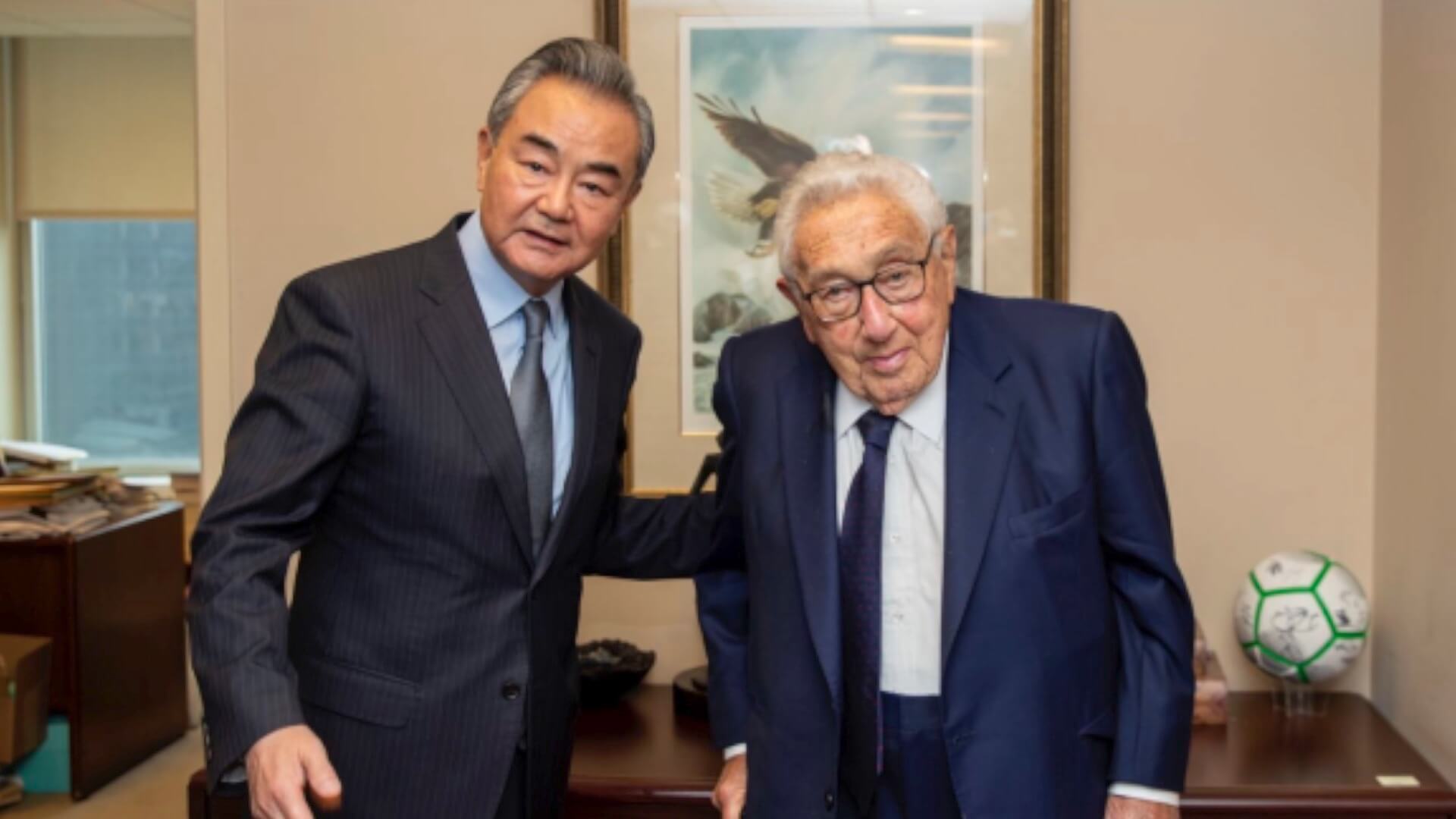During his meeting with former US Secretary of State Henry Kissinger, top Chinese Diplomat Wang Yi urged the US to handle the Taiwan question properly and said that the US should publicly oppose “Taiwan independence.”
The 100-year-old former US National Security Advisor (NSA) also met Chinese Defence Minister Li Shangfu during his surprise visit to Beijing.
It is to be noted that 52 years ago, during the Presidency of Richard Nixon, Kissinger visited Beijing in July 1971, thus paving the way to normalise the turbulent US-China relations.
China cherishes the friendship established with its old allies. The US policy toward China needs Kissinger's diplomatic wisdom and Nixon's political courage, Wang said, emphasizing that the one-China principle is at the core of the Taiwan question, and if the US truly wants the… https://t.co/oFTJ23ZhOI
— Global Times (@globaltimesnews) July 19, 2023
Taiwan Independence
Outlining China’s position on Taiwan, Wang emphasised that “One China” is the most fundamental status quo of the Taiwan issue.
He said that “Taiwan independence” is incompatible with peace across the Taiwan Strait, and the one-China principle set out in the “Shanghai Communique” must be strictly abided by.
Wang warned that the US should take actions to clearly and publicly oppose “Taiwan independence” and draw a clear line from “Taiwan independence” separatist activities.
In response, Kissinger said, “One China is a solemn commitment made by the United States in the “Shanghai Communique,” and I believe it will not be shaken or abandoned.”
The Shanghai Communique, issued on 27 February 1972, resulted from Nixon and Kissinger’s historic week-long visit to the People’s Republic of China. With this, the US acknowledged that “all Chinese on either side of the Taiwan Strait maintain there is but one China.”
US-China Must Maintain Relations
In his meeting with Wang, Kissinger said that both the US and China have the ability to influence the world.
He highlighted that maintaining stable relations between the two countries has a bearing on world peace, stability and human well-being.
China's top diplomat Wang Yi meets with Kissinger in Beijing https://t.co/bf4zOZnZ9s pic.twitter.com/ha9njHBiVr
— Reuters (@Reuters) July 19, 2023
“No matter how difficult it is, both sides should treat each other as equals and maintain contact. It is unacceptable to try to isolate or isolate the other side,” Kissinger said.
The foreign ministry statement affirmed that China maintains a high degree of continuity in its policy toward the US.
It said, “Beijing fundamentally follows the principles of mutual respect, peaceful coexistence, and win-win cooperation proposed by President Xi Jinping.”
Impossible to Contain China
The Ministry of Foreign Affairs website said that Kissinger met Wang, the director of the Central Foreign Affairs Office, and a CPC Central Committee Political Bureau member, on Wednesday.
Wang told Kissinger that China’s development has a strong internal driving force and inevitable historical logic.
He remarked, “It is impossible to try to transform China, and it is even more impossible to contain China.”
#BREAKING Beijing's top diplomat tells Kissinger it is impossible to 'contain' China: foreign ministry pic.twitter.com/EdpouBHK3B
— AFP News Agency (@AFP) July 19, 2023
The Chinese top diplomat said that US policy toward China requires the diplomatic wisdom of Kissinger and the political courage of Nixon.
Furthermore, Wang hailed Kissinger for his historic contributions to the ice-breaking development of China-US relations. He appreciated Kissinger for having played an irreplaceable role in enhancing mutual understanding between the two countries.
Meeting with Chinese Defence Minister
In Kissinger’s meeting with Li, the Chinese Defence Minister exhorted that the US should have a correct strategic judgment.
During the meeting, Kissinger said, “I am here as a friend of China.” He said neither the US nor China can afford to treat the other as an adversary.
The former NSA added, “The two militaries should strengthen communication and do their best to create for the development of bilateral relations.”

